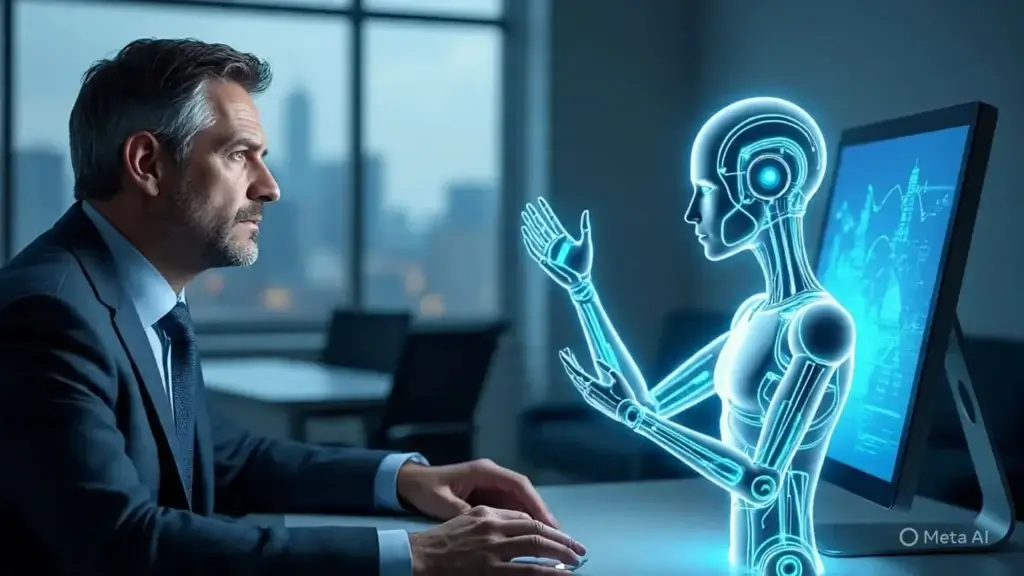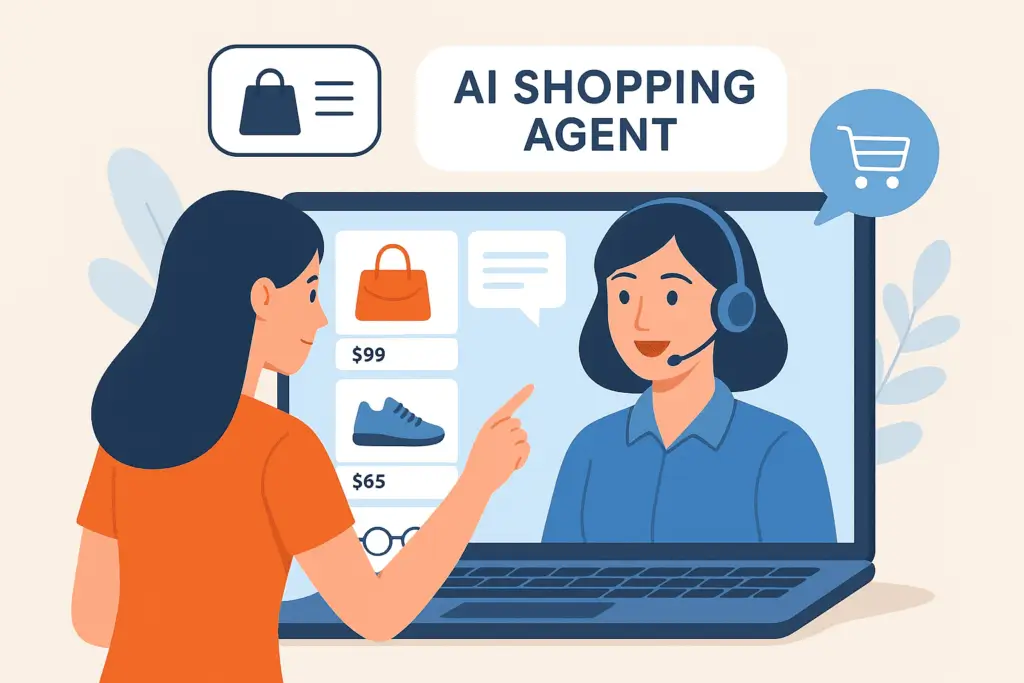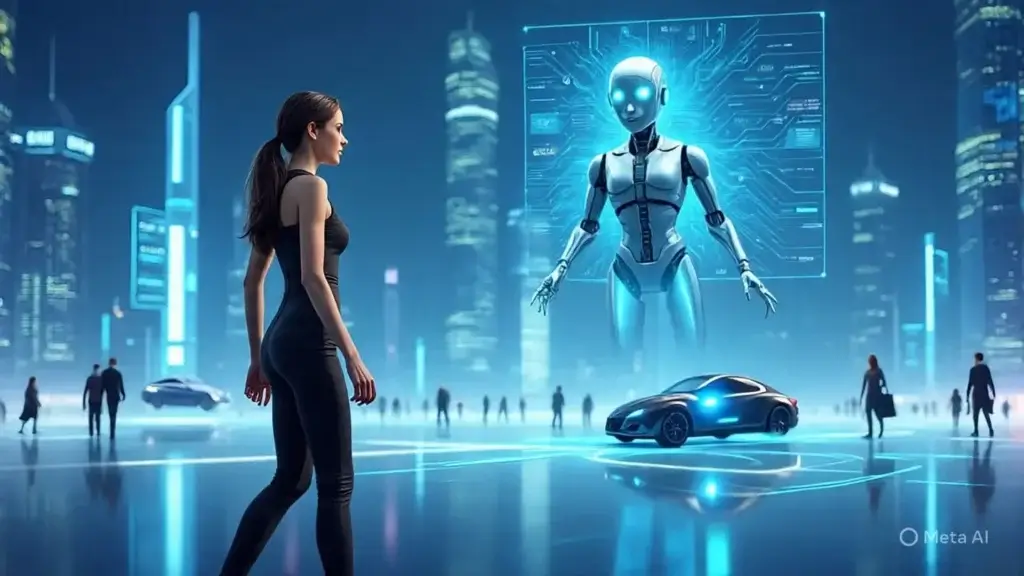Introduction: Trusting Humans Over Machines
In an era where artificial intelligence (AI) influences nearly every aspect of professional life, one fact stands out that Human Networks Outperform AI in Decision Making. Research shows that 64% of professionals trust human connections over AI when making critical decisions. This statistic underscores a powerful truth—no matter how advanced AI becomes, Human Networks remain the cornerstone of sound judgment, collaboration, and trust.
While AI excels at processing vast amounts of data, identifying patterns, and predicting outcomes, it lacks something essential—the depth of human relationships, emotional intelligence, and contextual understanding. In professional decision-making, where trust and credibility are paramount, human connections still outperform even the smartest algorithms.
The Growing Role of AI in Professional Decision Making
AI-Powered Analytics and Predictive Models
AI has revolutionized industries by offering predictive insights that help leaders make informed choices. From financial forecasting to talent acquisition, AI tools provide real-time analytics that humans alone could not achieve at scale.
Advantages of AI in Business Insights
-
Speed and Efficiency: AI processes massive datasets in seconds.
-
Pattern Recognition: It identifies correlations humans might overlook.
-
Consistency: AI eliminates human fatigue and ensures data-driven recommendations.
Despite these benefits, AI’s influence has limits. Professionals continue to lean on Human Networks for guidance, trust, and nuanced judgment—especially when stakes are high.
The Enduring Value of Human Networks
Emotional Intelligence and Empathy in Decision Making
Unlike AI, humans understand context, tone, and emotion. When professionals seek advice, they’re not just looking for facts—they want empathy and validation, qualities only human connections can provide.
The Power of Social Trust and Shared Experiences
Human Networks thrive on credibility and trust built over years of shared experiences. A colleague’s recommendation often carries more weight than an AI-generated suggestion, even if the AI is technically accurate.
Real-World Influence: Peer Recommendations Over Algorithms
From hiring decisions to strategic investments, peer insights and referrals often outweigh data models. Professionals value personal experiences and social proof, which create confidence that algorithms can’t replicate.
Why Professionals Prefer Human Networks Over AI
The Statistic: 64% Rely on Human Connections
A recent survey revealed that nearly two-thirds of professionals trust their Human Networks more than AI-driven tools when making career or business decisions. This highlights a deep-rooted belief that human trust cannot be automated.
Case Studies: Professional Decisions Driven by Networks
-
Recruitment: Hiring managers often prioritize referrals over AI-screened candidates.
-
Business Partnerships: Leaders choose collaborators recommended by trusted peers.
-
Career Moves: Professionals rely on mentors and colleagues for guidance rather than algorithmic job suggestions.
Where AI Falls Short Compared to Human Judgment
-
Context Blindness: AI may misinterpret cultural or situational nuances.
-
Bias Amplification: Algorithms can reinforce existing prejudices.
-
Lack of Human Warmth: AI recommendations feel impersonal, whereas human advice resonates.
Striking the Right Balance Between AI and Human Networks
Augmenting, Not Replacing Human Insight
The future isn’t about AI replacing Human Networks but AI augmenting human intelligence. Professionals can use AI as a powerful support tool while still relying on trusted networks for final decisions.
Ethical Considerations in Decision-Making
AI’s reliance on data raises ethical concerns about bias, privacy, and transparency. Human oversight ensures decisions are fair, empathetic, and aligned with professional values.
Future of Collaboration Between Humans and AI
By 2030, decision-making will likely become a hybrid model: AI handling data-heavy analysis while human networks provide emotional, ethical, and contextual input. This partnership ensures both efficiency and trust.
FAQs on Human Networks vs AI in Decision Making
Q1: Why do professionals still trust Human Networks over AI?
Trust, empathy, and shared experiences create confidence in decisions, which AI cannot replicate.
Q2: What role does AI play in professional decision-making?
AI offers predictive insights, data analysis, and recommendations, but lacks the human touch necessary for high-stakes decisions.
Q3: Are Human Networks always more reliable than AI?
Not always. AI is often more accurate in data-heavy analysis, but human connections are more reliable for contextual and ethical judgments.
Q4: What risks come with relying solely on AI?
Risks include algorithmic bias, loss of human empathy, and over-reliance on impersonal data-driven insights.
Q5: How can AI and Human Networks work together?
AI can provide fast, data-driven insights while Human Networks add trust, ethics, and empathy to final decisions.
Q6: Will AI ever fully replace Human Networks?
Unlikely. While AI will become more advanced, human trust and social relationships remain irreplaceable in professional decision-making.
Conclusion: Human Connections Remain the Gold Standard
In 2025, AI continues to shape industries with speed and efficiency. Yet, when it comes to professional decision-making, Human Networks remain unmatched. The statistic—64% of professionals trusting human connections over AI—is proof that trust, empathy, and credibility still matter more than raw data.
The future lies not in choosing between AI and Human Networks, but in harnessing both. By blending AI’s analytical power with the human touch of trusted networks, professionals can achieve the best of both worlds—decisions that are not only smart but also ethical and deeply human.
🔗 Further Reading: Harvard Business Review: Why People Still Matter in a World of AI




